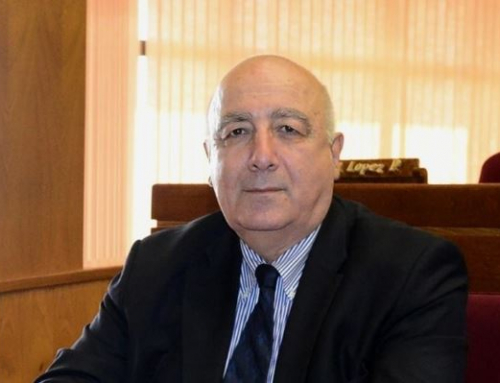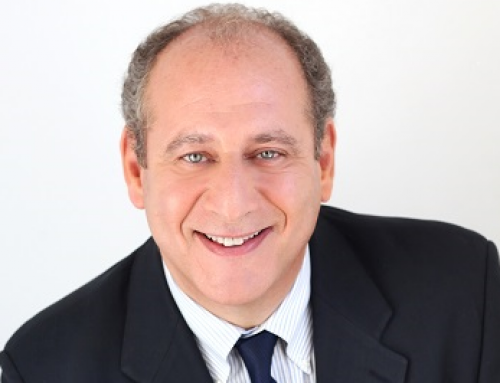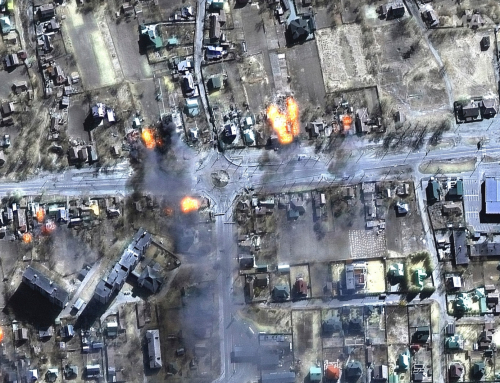Outsiders in both Russia and the West are quite prepared to tell Georgians what they should want and how they should pursue it. That is not their proper role: Georgians are the ones who must make choices about Georgia’s future. But outsiders sometimes can play a useful role by clarifying the questions that Georgians need to ask about themselves and their country and thereby helping the Georgians themselves to avoid falling into traps sometimes of their own making and sometimes the work of others.
The following ten questions, which focus on foreign policy and the relations between Tbilisi’s international relationships and its domestic development are offered in that spirit and in the hope that they will help Georgians deal both the situations they and their country currently find themselves in and with the various means they can choose in order to make the best of both.
Question One: What do Georgians most hope for?
Like most people, Georgians want it all: they would like their country to be restored to the borders it had before August 2008, they would like democracy, freedom, stability and economic growth, and simultaneous integration with the West and re-opening of markets in the Russian Federation. And also like most people, they do not focus on the fact that some of the things they want may make others more difficult and that they need to set priorities. If restoring the territorial integrity of Georgia is their most important immediate goal, then one strategy suggests itself. If integrating into Western institutions like NATO and the European Union is, then a different strategy is probably more useful. And if restoring relations with the Russian Federation is at the top of the list, then still a third set of steps likely would be required.
Consequently, Georgians – and their friends – need to recognize that having it all is not something Georgians or anyone else are likely to achieve at least in the near term and without divine intervention, and they need to make difficult choices rather than engaging in a rhetoric that suggests everything is possible. Indeed, overcoming that tendency which appears to dominate the rhetoric of some political figures in Tbilisi may be the most important thing Georgians can do to improve the situation, not only in terms of the political temperature of the country but also concerning the choices they make and the way they prosecute them. Otherwise, they will likely find themselves remaining in the kind of zero-sum politics that leads nowhere.
Question Two: What do Georgians most fear?
Georgians also appear to have a clear definition of what they most fear: continued Russian intervention to destabilize the country, continuing political and economic crises at home, and neglect on the part of the West, which seems to at least some Georgians more interested in particular Georgian politicians than in Georgia and its citizens.
Listing these concerns clarifies the situation in two important ways. On the one hand, it suggests that Georgians face serious international problems that can be addressed only by becoming involved with both sides, shifting from the politics of either/or to those of both/and, as the best way to advance its international position. And on the other, this list suggests that there is a great deal Georgians can do for themselves, that they are not simply the prisoners of a hostile or indifferent international environment.
Question Three: What is the balance between foreign and domestic policies as ways to promote the former and avoid the latter?
No one would deny that the future of Georgia depends on its foreign relations, but equally no one should deny that it also depends on what Georgians do in their own country. All too often, it seems to this writer, Georgians treat their foreign partners or opponents as a kind of magical solution to their problems or equally magical destruction of their hopes, thus using foreign policy not to advance Georgian interests but rather to provide an excuse for not addressing the domestic problems that Georgians and Georgia currently face.
The current Georgian discussions of the relationship between foreign and domestic policy need to change. If Georgians clearly list what they can do themselves and what they can only do – or not do – if outsiders act or don’t act. Because foreign policy should be intended to maximize the interests of the country and population, Georgians will be able to achieve more in both if they recognize that these need to be brought into some sort of balance. Exactly what kind of balance of course is for Georgians themselves to determine.
If Georgians think about the issues in this way, they will learn what many other countries have: promoting positive domestic developments can promote a country’s foreign policies, and neglecting the former can hurt the latter precisely because such neglect creates a situation that other countries will either exploit or use as a justification for not providing more support.
Question Four: What are Georgia’s overarching foreign policy goals?
Again, determining what Georgia’s foreign policy goals are a matter for the Georgians alone. It will reflect both what Georgians most want to see happen and what possibilities the international system offers. That again requires a setting of priorities and a balancing of domestic and foreign policy rather than striking positions however superficially attractive and hoping for the best.
As a Westerner, I believe Georgia should continue to pursue membership in or at least the closest possible relationships with NATO and the European Union, although the road to each will be extremely difficult not only because of Western requirements but because Moscow opposes both steps and has it within its power to prevent Georgia from achieving one of the things most Georgians want most: the restoration of the territorial integrity of the country.
But as someone who has worked on this region for a long time, I also believe that Georgia must seek improved relationships with the Russian Federation. It is a small country next to a very large one, and the world today is not what it was in 1985. Countries need to work out a modus vivendi with their neighbors in order to prosper and perhaps even more important to develop the kind of relations they would like to see with those further away.
Question Five: What are Georgia’s foreign policy resources?
This question is one that Georgians need to ask and reflect upon far more often. Too many discussions in Tbilisi act as if the only resource Georgia has are the ties it had with the West or the ones some Georgians hope to develop with the Russian Federation. That is simply wrong and a reflection of asking the question in the wrong way. Georgia has significant foreign policy resources beyond these: It is an ancient Christian culture, an integrated understanding of its nation, and a highly educated and extremely clever population. Its scholars and officials have significant experience working abroad, and all these things can be used.
The Georgian Church is potentially a key player in a troubled region. Indeed, Moscow views Georgia and the Georgian Church as a source of stability in a troubled area. Moreover, Georgia’s geographic location between north and south and east and west gives Tbilisi an influence internationally far out of proportion to its size. And its commitment to democracy and free markets has won not only praise in the West but attention from that quarter far greater than many might have predicted.
Any discussion of what Georgia should do should begin rather than end with an enumeration of these resources because they more than hopes or fears about the actions of others are going to play an essential role in determining where Georgia ends up.
Question Six: How do Georgians see their relationship with Russia developing?
Georgians appear split both individually and collectively about their relationship with Russia. Some fear that Russia will remain a threat to Georgia and undermine its possibilities. Others hope that Russia can be the basis for Georgia’s recovery and future. And this split sometimes alternates in individual Georgian officials and citizens.
Perhaps the three most useful steps Georgians could take in approaching this question would be to enumerate all the ways Russia might be one or the other, all the resources Georgians have to influence the situation (including their ties with the West), and both the opportunities if Tbilisi works to improve relations and the risks if it does not.
In short, Georgians need to think about this issue not as a global one but rather as a series of discreet policies and move beyond assessments of individual steps as representing a sweeping shift and consider the specifics of the situation. That won’t be easy, and commentators in both Moscow and the West won’t make it any easier. But it is the only way to move forward, to take advantage of possibilities where they exist and avoid pitfalls where they are most obvious.
Question Seven: How do Georgians see their relationship with the West developing?
A similar problem exists with Georgian assessments of relations with the West. Some Georgians see the West as the magic solution to all Georgia’s problems. If only the West would embrace Georgia fully, they think, all their problems would disappear. Those who think that should examine what has happened in Estonia, Latvia and Lithuania, all of who are members of NATO and the EU. These institutions matter but they clearly don’t matter in the same way they did a generation ago. And they won’t matter in that way if they take in Georgia eventually as I hope they will.
Other Georgians believe that the West is moving away from Georgia, that it was drawn to Georgia by the two previous charismatic leaders in Tbilisi, and that it has been disappointed. And they are thus convinced that Georgia is at risk of having to confront Russia on its own. Still worse, many Georgians appear to alternate between these two positions with alarming speed, failing to recognize that the West probably won’t play the role they hope or the one they fear. Instead, the West, pursuing its own interests is likely to continue to do a little of both.
That isn’t easy to accept, but it is the way the world works. And Georgians can prosecute their dream if and only if they deal with those realities that they can specify. In sum, Georgians can best answer the question of what they should do if they unpack these two sets of relationships and consider all the range of possibilities rather than assume everything must be one way or the other. To continue to assume that will cost Georgia more than it can afford.
Question Eight: How do Georgians see their relationship with their immediate neighbors in the Caucasus developing?
Georgians consider their relationships with Azerbaijan, Armenia and the republics of the North Caucasus important, but they sometimes treat each of these holistically rather than consider that in each of these cases, there will be some agreement and some disagreement, and that Tbilisi will achieve the most if it pursues what it can at the lowest cost in its relationships with others. That may mean downgrading relations with the North Caucasus, balancing relations with Azerbaijan, and improving ties with Armenia. (Indeed, for domestic reasons, all three of those changes seem to be indicated.) But again this is for Georgians to decide. And they will do best if they simply list what each of these relationships brings, what their opportunity costs are, and what Georgia might do if it dramatically changed what it has been doing.
Question Nine: How do Georgians see their relations with Turkey and Iran developing?
Georgians recognize that the fate of their country depends on developing relationships with both Turkey and Iran. But to a large extent, these ties have not received either the attention or the actions that they would seem to require. Neither represents easy choices for Tbilisi, but both represent a list of opportunities and dangers. If Georgia is going to “do the right thing” with either, it needs to itemize both the positives and the negatives and then combine them with its broader foreign and domestic needs.
Question Ten: Can Georgians “think the unthinkable” and transform their weaknesses into strengths and the strengths of their opponents into weaknesses?
Finally, Georgia as a small country in a difficult neighborhood surrounded by hostile or indifferent powers and lacking so far integration with outside states further away may discover what other states have. That is, it may be able to achieve more if it thinks the unthinkable and thus transforms what appear to be weaknesses into strengths and the strengths of its opponents into weaknesses at least when it comes to Georgia.
There are many possibilities that spring to mind. Sometimes they involve Georgians taking or at least suggesting the possibility of taking exactly the steps that their opponents say they want. To give but one example for reflection: What would Moscow’s reaction be to a Georgian recognition of Abkhazia as a separate state? One imagines that Moscow would be quite horrified if the opening of a Georgian embassy there were to be followed by the opening of embassies from Tbilisi’s Western partners. Such a move would likely cost the Russian government any hope of keeping the North Caucasus within the borders of the Russian Federation or even in a Russian sphere of influence.
To raise this possibility is not to advocate it, but it is to suggest that Georgia, like a good specialist in the martial arts, can use feints that might appear to some an expression of weakness but that in fact would represent a remarkable and unexpected source of strength.






Leave A Comment
You must be logged in to post a comment.